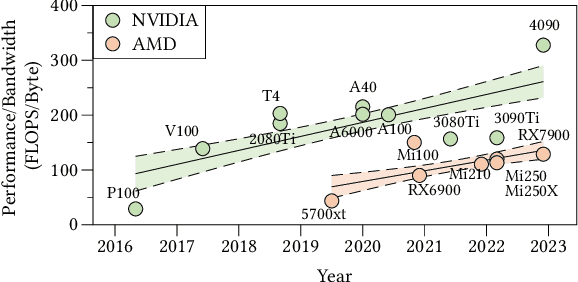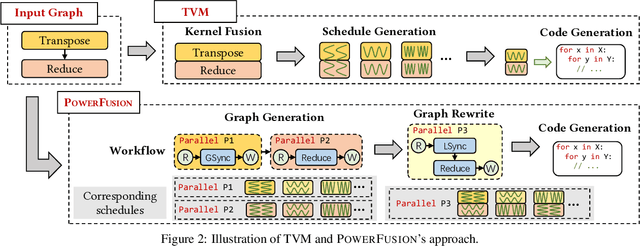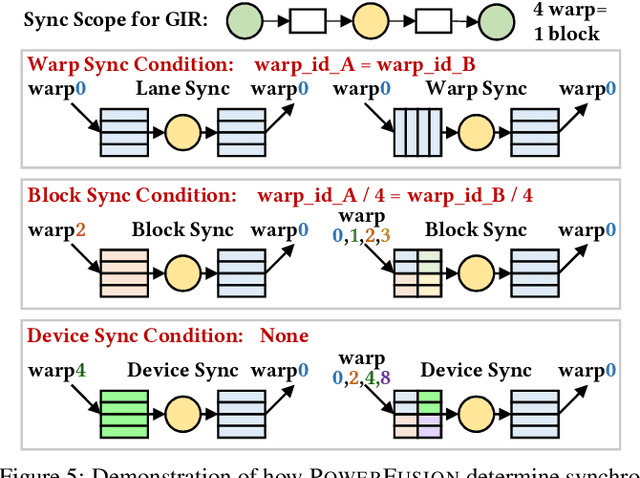Huanqi Cao
mHC: Manifold-Constrained Hyper-Connections
Dec 31, 2025Abstract:Recently, studies exemplified by Hyper-Connections (HC) have extended the ubiquitous residual connection paradigm established over the past decade by expanding the residual stream width and diversifying connectivity patterns. While yielding substantial performance gains, this diversification fundamentally compromises the identity mapping property intrinsic to the residual connection, which causes severe training instability and restricted scalability, and additionally incurs notable memory access overhead. To address these challenges, we propose Manifold-Constrained Hyper-Connections (mHC), a general framework that projects the residual connection space of HC onto a specific manifold to restore the identity mapping property, while incorporating rigorous infrastructure optimization to ensure efficiency. Empirical experiments demonstrate that mHC is effective for training at scale, offering tangible performance improvements and superior scalability. We anticipate that mHC, as a flexible and practical extension of HC, will contribute to a deeper understanding of topological architecture design and suggest promising directions for the evolution of foundational models.
SampleAttention: Near-Lossless Acceleration of Long Context LLM Inference with Adaptive Structured Sparse Attention
Jun 28, 2024Abstract:Large language models (LLMs) now support extremely long context windows, but the quadratic complexity of vanilla attention results in significantly long Time-to-First-Token (TTFT) latency. Existing approaches to address this complexity require additional pretraining or finetuning, and often sacrifice model accuracy. In this paper, we first provide both theoretical and empirical foundations for near-lossless sparse attention. We find dynamically capturing head-specific sparse patterns at runtime with low overhead is crucial. To address this, we propose SampleAttention, an adaptive structured and near-lossless sparse attention. Leveraging observed significant sparse patterns, SampleAttention attends to a fixed percentage of adjacent tokens to capture local window patterns, and employs a two-stage query-guided key-value filtering approach, which adaptively select a minimum set of key-values with low overhead, to capture column stripe patterns. Comprehensive evaluations show that SampleAttention can seamlessly replace vanilla attention in off-the-shelf LLMs with nearly no accuracy loss, and reduces TTFT by up to $2.42\times$ compared with FlashAttention.
Near-Lossless Acceleration of Long Context LLM Inference with Adaptive Structured Sparse Attention
Jun 17, 2024Abstract:Large language models (LLMs) now support extremely long context windows, but the quadratic complexity of vanilla attention results in significantly long Time-to-First-Token (TTFT) latency. Existing approaches to address this complexity require additional pretraining or finetuning, and often sacrifice model accuracy. In this paper, we first provide both theoretical and empirical foundations for near-lossless sparse attention. We find dynamically capturing head-specific sparse patterns at runtime with low overhead is crucial. To address this, we propose SampleAttention, an adaptive structured and near-lossless sparse attention. Leveraging observed significant sparse patterns, SampleAttention attends to a fixed percentage of adjacent tokens to capture local window patterns, and employs a two-stage query-guided key-value filtering approach, which adaptively select a minimum set of key-values with low overhead, to capture column stripe patterns. Comprehensive evaluations show that SampleAttention can seamlessly replace vanilla attention in off-the-shelf LLMs with nearly no accuracy loss, and reduces TTFT by up to $2.42\times$ compared with FlashAttention.
PowerFusion: A Tensor Compiler with Explicit Data Movement Description and Instruction-level Graph IR
Jul 11, 2023



Abstract:Deep neural networks (DNNs) are of critical use in different domains. To accelerate DNN computation, tensor compilers are proposed to generate efficient code on different domain-specific accelerators. Existing tensor compilers mainly focus on optimizing computation efficiency. However, memory access is becoming a key performance bottleneck because the computational performance of accelerators is increasing much faster than memory performance. The lack of direct description of memory access and data dependence in current tensor compilers' intermediate representation (IR) brings significant challenges to generate memory-efficient code. In this paper, we propose IntelliGen, a tensor compiler that can generate high-performance code for memory-intensive operators by considering both computation and data movement optimizations. IntelliGen represent a DNN program using GIR, which includes primitives indicating its computation, data movement, and parallel strategies. This information will be further composed as an instruction-level dataflow graph to perform holistic optimizations by searching different memory access patterns and computation operations, and generating memory-efficient code on different hardware. We evaluate IntelliGen on NVIDIA GPU, AMD GPU, and Cambricon MLU, showing speedup up to 1.97x, 2.93x, and 16.91x(1.28x, 1.23x, and 2.31x on average), respectively, compared to current most performant frameworks.
RWKV: Reinventing RNNs for the Transformer Era
May 22, 2023



Abstract:Transformers have revolutionized almost all natural language processing (NLP) tasks but suffer from memory and computational complexity that scales quadratically with sequence length. In contrast, recurrent neural networks (RNNs) exhibit linear scaling in memory and computational requirements but struggle to match the same performance as Transformers due to limitations in parallelization and scalability. We propose a novel model architecture, Receptance Weighted Key Value (RWKV), that combines the efficient parallelizable training of Transformers with the efficient inference of RNNs. Our approach leverages a linear attention mechanism and allows us to formulate the model as either a Transformer or an RNN, which parallelizes computations during training and maintains constant computational and memory complexity during inference, leading to the first non-transformer architecture to be scaled to tens of billions of parameters. Our experiments reveal that RWKV performs on par with similarly sized Transformers, suggesting that future work can leverage this architecture to create more efficient models. This work presents a significant step towards reconciling the trade-offs between computational efficiency and model performance in sequence processing tasks.
CPM: A Large-scale Generative Chinese Pre-trained Language Model
Dec 01, 2020



Abstract:Pre-trained Language Models (PLMs) have proven to be beneficial for various downstream NLP tasks. Recently, GPT-3, with 175 billion parameters and 570GB training data, drew a lot of attention due to the capacity of few-shot (even zero-shot) learning. However, applying GPT-3 to address Chinese NLP tasks is still challenging, as the training corpus of GPT-3 is primarily English, and the parameters are not publicly available. In this technical report, we release the Chinese Pre-trained Language Model (CPM) with generative pre-training on large-scale Chinese training data. To the best of our knowledge, CPM, with 2.6 billion parameters and 100GB Chinese training data, is the largest Chinese pre-trained language model, which could facilitate several downstream Chinese NLP tasks, such as conversation, essay generation, cloze test, and language understanding. Extensive experiments demonstrate that CPM achieves strong performance on many NLP tasks in the settings of few-shot (even zero-shot) learning. The code and parameters are available at https://github.com/TsinghuaAI/CPM-Generate.
 Add to Chrome
Add to Chrome Add to Firefox
Add to Firefox Add to Edge
Add to Edge